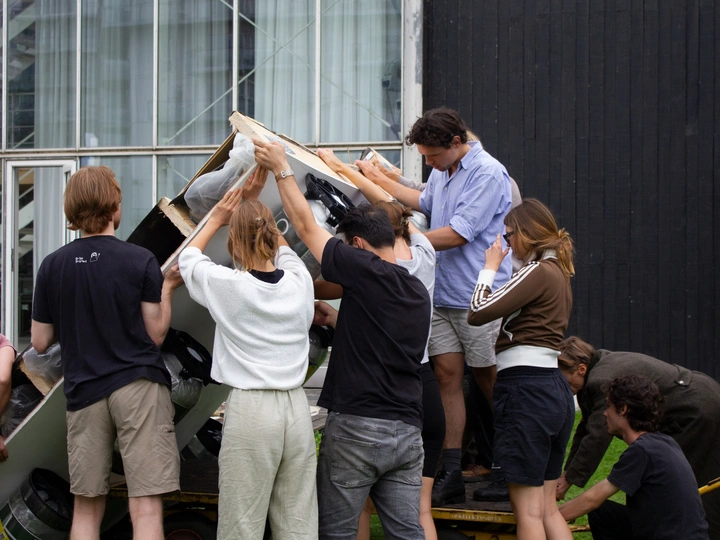Paraply Workshop — The Everyday

Emil Hvelplund
Our team was formed by Valentin Abend and Emil Hvelplund.
Valentin was raised in a small village in the Mediterranean, which formed his relationship to the environment. He studied at the Kent School of Architecture and the Accademia di architettura di Mendrisio, and has worked at Herzog & de Meuron in Basel and SO – IL in New York. He is the co-founder and project director for the environmental education nonprofit, Climate Words, and faculty at Parsons School of Design, where he teaches about the relationship between power structures, design and regenerative practices. Valentin’s work brings the urgency of climate action to the architecture and design space, having attended United Nations Climate Conferences, and led direct campaigns with universities in Europe and the US.
Emil grew up on an apple orchard in the Danish countryside, where he learned about construction and farming from an early age. Later he studied architecture at The Royal Danish Academy of Architecture and the Accademia di architettura di Mendrisio, where he met Valentin. He has also worked for Herzog & de Meuron in Basel and SO – IL in New York. he is now part of the faculty at the Royal Danish Academy of Architecture, teaching his own studios, and where he has led film workshops.
We are interested in teaching methodologies that encourage action and embrace failure. We are eager to explore collaborative and iterative architectural practices in response to the environmental crisis and its ethical and social implications we face. Our intention is to create a space that compliments the architectural education of the next generations of architects, which fully and freely addresses the agency of the field.
We successfully formed a team and brought together enough participants. We are in the planning stages for this year's edition, in 2024, and we are looking to break through to the international architecture audience as a known contemporary and conscious annual workshop.
Many institutions are failing to address the brink of ecological collapse all around us from biodiversity loss to over construction, over consumption, mining, waste, and a disproportionate impact on the most vulnerable people and areas. After Mendrisio, Valentin garnered the tools needed in the climate space: sociocracy, nonviolent communication, capacity-building and organisation design. Meanwhile, Emil was bringing an observatory approach to architecture school by leading a film and architecture workshop. We discussed teaching methodologies and ways to address the climate crisis through the educational elements we had been developing. The opportunity emerged to form a team with members of the student association at the Royal Danish Academy, and use a newly vacant hangar space.
The workshop is formed around the following core themes: observing the everyday; working only with abandoned building materials; failure; self-organising; full scale interventions; learning by doing; responding to existing buildings pending reuse, renovation or demolition.
The everyday is our core recurring theme, acknowledging assumptions carried and paying attention to the ordinary, daily life, much of which is costing the planet dearly. Last year, in the first edition of the workshop, the subtheme was 100 Years, acknowledging the Modern manifesto of Le Corbusier, published in 1923, Vers une architecture, which defined the architectural field for better and for worse. “What would our manifesto look like today for the next 100 years?” was the question we opened. This year, during the second edition, the subtheme will be Waterfront, dealing with the shaping of the waterfront itself, and the water as a connector to other coasts.
We brought together a diverse group of participants around international collaboration and idea sharing. We created an inclusive space for engagement, connection and response, including guest lectures and culminating in a public exhibition.